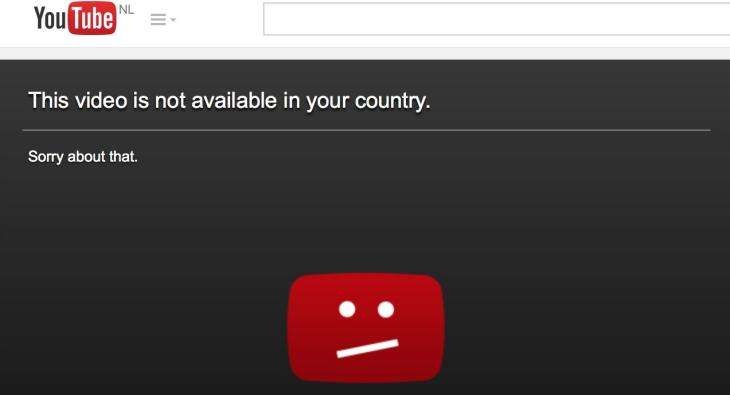Entertainment Underload: There's more entertainment than ever, just not for Indians

The first television show I ever watched was Lucille Ball's 'I Love Lucy' on Doordarshan. Our family didn't own a television set, so I would wait for the annual trip in the winter holidays to Bombay, where my grandmother lived. Grandma had a TV and her favourite show was 'I Love Lucy', even though she didn't speak a word of English and couldn't follow the dialogue.
This was in the mid-1980s. In the thirty years since, we have seen an explosion in the range of entertainment options available to us in India. Today we have access to content on YouTube, Netflix, direct-to-home hi-definition satellite television and, of course, the neighbourhood multiplex.
The entertainment universe has simultaneously expanded and contracted for us. Back in the Noughties, the internet was a genuinely revolutionary space. Everything was available on it; you only had to know where to look. This might be true even now, but solely for a small band of geeks who know how to beat the system. It's not that easy for the rest of us, certainly not as easy as it was when one could simply type in a song name on Limewire and download it.
The Noughties revolution had more meaning for us than an American. We were the ones emerging from decades of socialism and its limited options. The west already had access to their movies, music and TV shows. The Internet was one more way of accessing the same content. For us, however, it was as if the whole world had opened up at the press of a button. It was only a matter of time before the world would start shutting us out.
Access denied
Look at YouTube now. There is plenty streaming for free but every so often you will encounter a message which says: 'this content is barred from streaming in your area.' You can watch it in Europe but not in India. It's increasingly difficult to find new music on YouTube-it's removed as soon as it's put up by dedicated armies of hired monitors. This wasn't the case in the Noughties.
Sometimes the restrictions seem bizarre because you can access content on one platform but not on another. Perhaps the idea is that you can access only what you've paid for. So while I can watch a major English Premier League match on Star Sports HD, I cannot tune in to the commentary on the Internet station BBC Radio Five Sports Extra. Similarly, I can watch the Jimmy Kimmel Show on direct-to-home but if I want to re-watch a segment on YouTube, I cannot. Instead, I get the blocked-in-your-area message.

At times, this is enormously frustrating. It reminds me of Indian schoolboy slang from the eighties: KLPD. It's a bit like when someone invites you home for dinner, shows you the spread on the dinner table and then does an MC Hammer on you: you can't touch this. How rude.
Say I am exploring BBC's impressive array of radio stations. I go into the archives and I want to listen to a John Peel session of an obscure band. I can see all the archives, I spend hours trawling that list and choosing which episode I want to listen to but when I finally click on it, it gives me the blocked message. BBC's indie music station Radio 6 Music announces that it will stream the music festival Glastonbury live. As a loyal listener you look forward to the announced evening only to find you've been barred again.
Or someone sends you a link about how the humour in Scandinavian TV shows is very different from Anglo-American humour. The obvious next step is that you want to sample some of these shows. Technologically it's possible, but the rules and regulations make it impossible.
Back to the dark days
This, I feel, is worse than the good old eighties when we were happily unaware of half the developments going on in the entertainment universe. Ignorance was bliss. These days, you really feel discriminated against. You feel left out. You think to yourself: There is all this, but why am I not allowed access to it? You think 'racist' thoughts: what will white people do with their walled off archives? Will the heavens fall or will their bottom lines collapse completely if Asians and Africans access some shows and songs lying in their vault?
Netflix is also a mixed bag; it promises to disappoint. When it launched one thought it would be a bottomless well but it isn't. When you take a peek inside, the bottom is visible. It's right there. An arm's length down. Part of this might have to do with Netflix's larger strategy of buying less and producing more exclusive content of its own. But how much of this content will be available to us in India? And how soon?
Also read -Ladies Room: this web series is a storm of fresh air
HD too is slow in putting up new shows. Tune into Star World HD Premiere and chances are you will end up watching the hundredth re-run of the Stephen Colbert Show, most likely the episode where he interviews Bruce Springsteen. Veep played on a loop on HD here for the longest time as if there was nothing else happening on American TV.
The world's premier music streaming service, Spotify, is rumoured to start operations in India and Japan, but it's a rumour still. No official announcement has been made; instead, Spotify has launched in Indonesia. One hopes that when they come to India, they open up the service in full rather than limiting it.
Bill don't block
The whole point of living in a globalised inter-connected world is that anyone anywhere can dip into and add to a common cultural pool. This was the promise of the Internet in its heyday. Over the last decade we have seen the promise being watered down. Private and public broadcasters both have started to restrict access to content, spurred primarily by concerns of falling profits.
If that's the case, they should go ahead and charge what they deem is a reasonable fee. But don't block us off in toto. And if we are willing to pay, don't give us an experience that is not even half that of the international viewer who has paid for the same service. This entertainment apartheid has to end.
Also read -Rights of Admission Reserved - the struggle to get in with the in crowd
The real thrill of living in this century was supposed to be that you could access whatever you wanted sitting wherever you are. A fan in Iceland should be able to access the latest Bollywood blockbuster, while an Indian should be able to watch a Scandinavian TV show. That would make for a truly multicultural global conversation.
(The writer's The Butterfly Generation was a finalist for the Crossword Book Award)
First published: 27 October 2016, 8:33 IST





![BJP's Kapil Mishra recreates Shankar Mahadevan’s ‘Breathless’ song to highlight Delhi pollution [WATCH] BJP's Kapil Mishra recreates Shankar Mahadevan’s ‘Breathless’ song to highlight Delhi pollution [WATCH]](https://images.catchnews.com/upload/2022/11/03/kapil-mishra_240884_300x172.png)

![Anupam Kher shares pictures of his toned body on 67th birthday [MUST SEE] Anupam Kher shares pictures of his toned body on 67th birthday [MUST SEE]](https://images.catchnews.com/upload/2022/03/07/Anupam_kher_231145_300x172.jpg)






